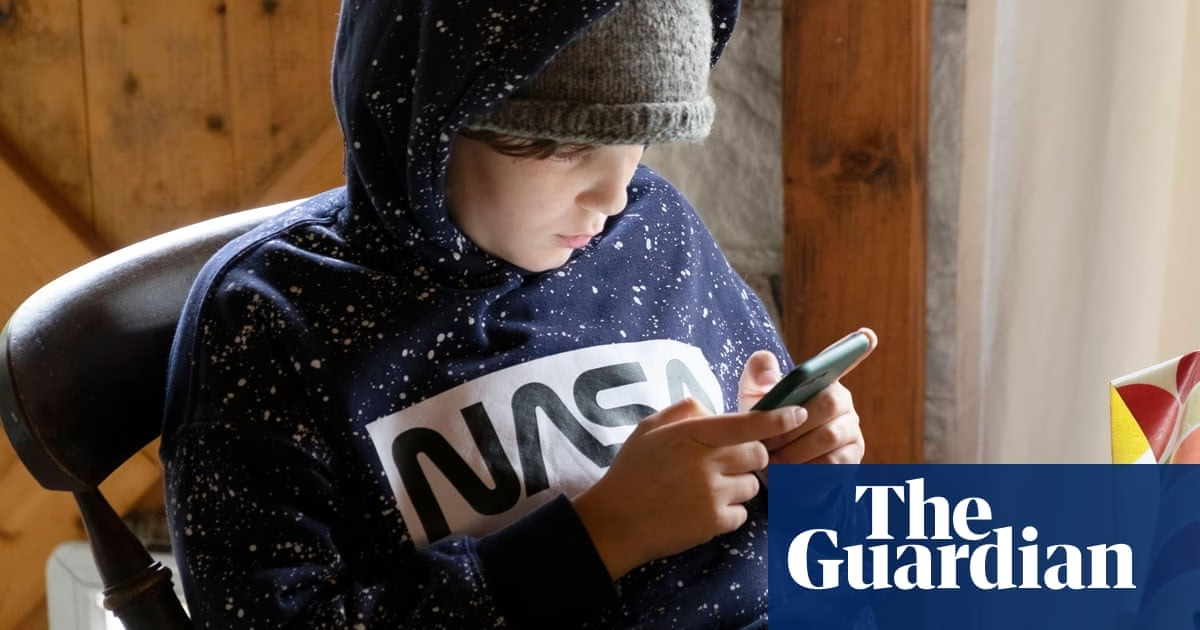Children are increasingly taking breaks from their smartphones to better manage their mental health, personal safety, and concentration spans, according to research findings. They are reacting to growing concerns that spending too much time online can be harmful, by taking control of their own social media and smartphone use rather than relying on parents to enforce limits, experts say.
The number of children aged 12 to 15 who take breaks from smartphones, computers, and other devices has risen by 18% to 40% since 2022, according to audience research company GWI. The data was drawn from a survey of 20,000 young people and their parents across 18 countries.
Professor Sonia Livingstone, the director of the LSE’s Digital Futures for Children center, has echoed these findings, emphasizing that children are seeking various options to manage how their online lives affect their wellbeing. These options include taking breaks from social media, seeking out more positive online experiences, distancing themselves from negativity online, and in some cases, quitting social media altogether.
Livingstone noted that children have understood the message from various sources, including parents, that unlimited social media use isn’t always beneficial. “So, they are experimenting with different ways of safeguarding their wellbeing without fully giving up on social media,” she said. “I believe they are likely discussing effective strategies with each other and figuring out how to move forward.”
Daisy Greenwell, the co-founder of Smartphone Free Childhood, has been observing a trend of young people questioning the idea that growing up online is inevitable. She stated that many teenagers feel exhausted by the constant pressure to stay connected and are choosing to step back for the sake of their mental health. “Many of them are realizing that these platforms aren’t neutral; they are designed to manipulate attention,” she noted, adding that these young people are “realizing that their time, focus, and self-esteem are being monetized by some of the world’s biggest companies. Taking a break has essentially become an act of rebellion.”
Recent Ofcom research supports these findings, revealing that a third of children aged eight to 17 who use the internet think their screen time is too high. Similarly, nearly half of 16 to 24-year-olds who use social media have deactivated notifications or use “do not disturb” mode, an increase from 2023. Young people are more likely to take deliberate breaks from social media, delete apps due to excessive use, and remove apps for mental health reasons than older adults.
David Ellis, a professor of behavioral science at the University of Bath, acknowledged that teenagers may have quicker access to features that control their time on social media and smartphones than their parents. However, he pointed out that evidence regarding the long-term effectiveness of these features in changing behavior is mixed. “If someone spends less time sitting in front of a screen and increases their physical activity, most people would view that as a net positive,” he noted, though he warned that the time could be spent on less beneficial activities.
Young people between the ages of 18 to 25 have expressed concerns about the unrestricted access they had to smartphones and the internet during their teenage years. Several have stated that they would limit their children’s access to smartphones until their late teens.
A recent poll revealed that nearly half of young people would prefer to live in a world without the internet, with a similar proportion supporting a digital curfew. More than three-quarters of individuals feel worse about themselves after using social media.
The GWI research also found that social media addiction is among parents’ top three fears for their children, ranking alongside climate change, war, and housing costs. Eight percent of parents have become stricter about screen-time limits after watching the Netflix show “Adolescence,” which highlights the dangers of online misogyny.
Source: https://www.theguardian.com/technology/2025/jul/10/children-limiting-own-smartphone-use-manage-mental-health-survey








